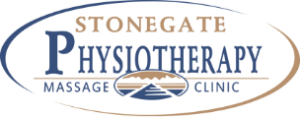What Is Therapeutic Exercise and How Can It Benefit You?
Let our physiotherapists customize and develop a plan that fits your unique needs.
Therapeutic exercise is a type of physiotherapy that involves targeted movements, stretches, and exercises designed to help patients manage chronic conditions or recover from pain, injury, or surgery. The goal of therapeutic exercise is to improve function, mobility, and strength while reducing pain and preventing further injury. In addition to improving physical function, therapeutic exercise can also have mental and emotional benefits such as stress and anxiety reduction, improvement in mood, and an overall increase well-being.
Conditions That Therapeutic Exercise Can Treat

The ultimate goal of therapeutic exercise is to reduce pain and inflammation and improve range of motion and mobility. Therapeutic exercises can be widely beneficial if you have an injury, are post-operative, or have a chronic condition. Each type of exercise in our programs helps to improve muscle and joint function while also promoting overall healing.
Conditions that we treat at Stonegate Physiotherapy and Massage Clinic with therapeutic exercise include:
Musculoskeletal injuries
- Sprains: Stretching or partial tearing of ligaments.
- Strains: Damage to the muscle or a tissue connecting muscle to bone.
- Joint injuries: Injury or degeneration of the cartilage in the joints.
- Overuse-type (repetitive stress) injuries: Damage and pain caused by repetitive movement.
Neurological disorders
- Stroke: Medical emergency that occurs when there is damage to the brain from disruption of its blood supply.
- Parkinson’s disease: Neurological disease that affects movement and is caused by the regression of dopamine-producing neurons in the brain
- Multiple sclerosis: Disabling disease that occurs when the immune system attacks the protective covering of nerves.
Chronic pain
- Fibromyalgia: Extensive, widespread muscle pain and tenderness.
- Chronic headaches: Mild to severe pain that occurs in the head, such as sharp pain and achiness.
- Chronic back pain: Back pain that persists for 12 weeks or longer, even after an injury or underlying cause has been treated.
Post-surgical rehabilitation
- Joint Replacement Surgery: Joint replacement surgeries, such as hip and knee replacements.
- Spinal Surgery: Spinal surgery, including lumbar and cervical procedures.
- Orthopedic Surgery: Orthopedic surgeries, such as rotator cuff repair or ACL reconstruction.
Therapeutic Exercise Techniques
At Stonegate Physiotherapy and Massage Clinic, we believe in taking a holistic approach to your healing journey. Our team will conduct a thorough evaluation of your condition, taking into account your physical, mental and cognitive symptoms, as well as your lifestyle factors. By treating the whole person, we can create a personalized treatment plan that addresses all aspects of your well-being and helps you achieve the best possible outcomes. Trust us to provide you with the care and support you need to feel your best.
Therapeutic exercises can include a wide range of techniques, such as:
- Range-of-motion exercises: Designed to improve flexibility and increase the range of motion in the joints. Range of motion exercises can be passive or active, depending on the patient’s ability. Passive exercises are when your physiotherapist causes movement of a joint while you rest in place, while active exercises can be performed independently under a physiotherapist’s supervision.
- Stretching exercises: Exercises that are designed to improve flexibility and reduce muscle tension. Stretching can improve posture, reduce back pain, prevent injury, and ease muscle tension, in addition to numerous other benefits. Our physiotherapists will teach you the appropriate stretches for your condition and accompanying symptoms.
- Strengthening exercises: Exercises that are aimed at strengthening specific muscles or muscle groups. Strength training can involve the use of weights, resistance bands, or bodyweight exercises. For example, exercises that target the muscles of the abdomen, lower back, and pelvis (core stabilization exercises) provide support and stability for the spine and hips.
- Balance exercises: Improves patients’ balance and stability, which can help prevent falls and injuries. Examples include balancing on one foot, walking heel-to-toe, and standing up and sitting down from a chair without using your hands.
- Posture and body mechanic exercises: Help you improve your posture and reduce the risk of developing pain or injury related to poor posture or faulty movements. Improper posture can cause body aches and pains, muscle fatigue, and many other symptoms.
Get Back to Living Your Life with a Customized Healing Plan
Achieve optimal health and wellness by seeking the help of our team of experienced physiotherapists in Airdrie, AB. We believe in a holistic approach to healing, focusing not only on the physical pain or injury, but also on improving your overall well-being. Our goal is to help you regain your strength, mobility, and confidence so you can live your life to the fullest. Take the first step towards a pain-free life today by starting your journey to recovery with Stonegate Physiotherapy and Massage Clinic.
Your Next Steps…
Request An Appointment
Receive A Custom Treatment Plan
Work Hard and Progress In Your Recovery
Recover & Enjoy Life Pain-Free!

